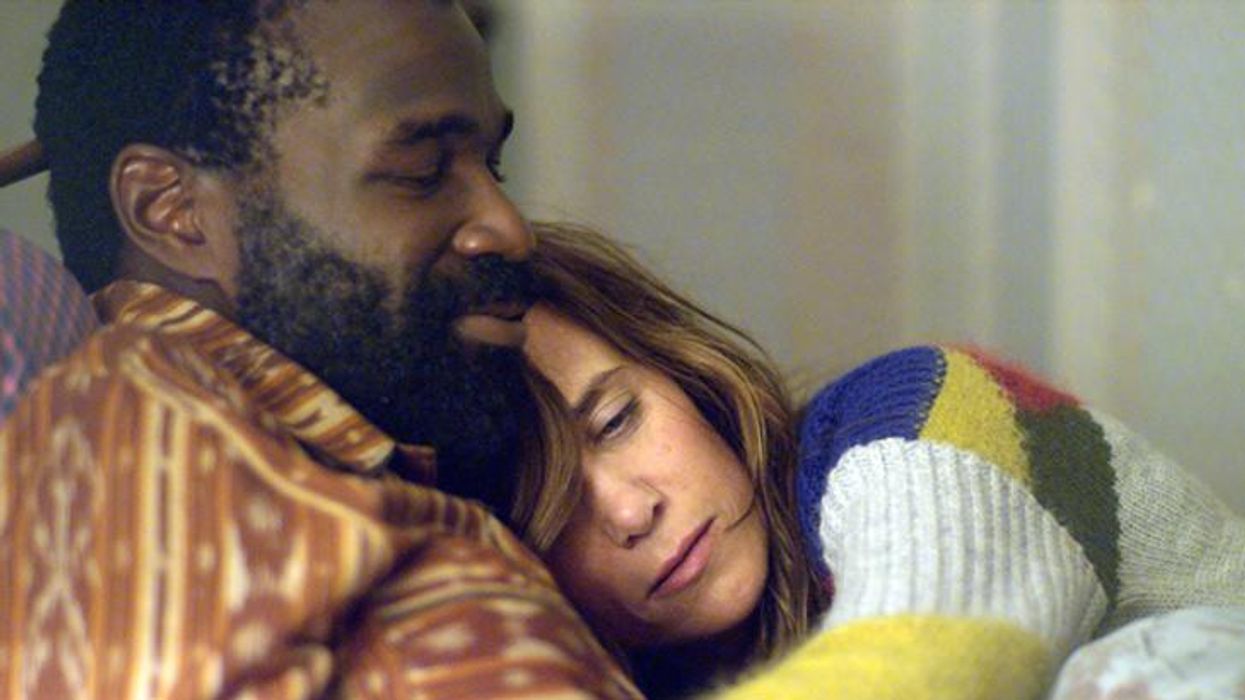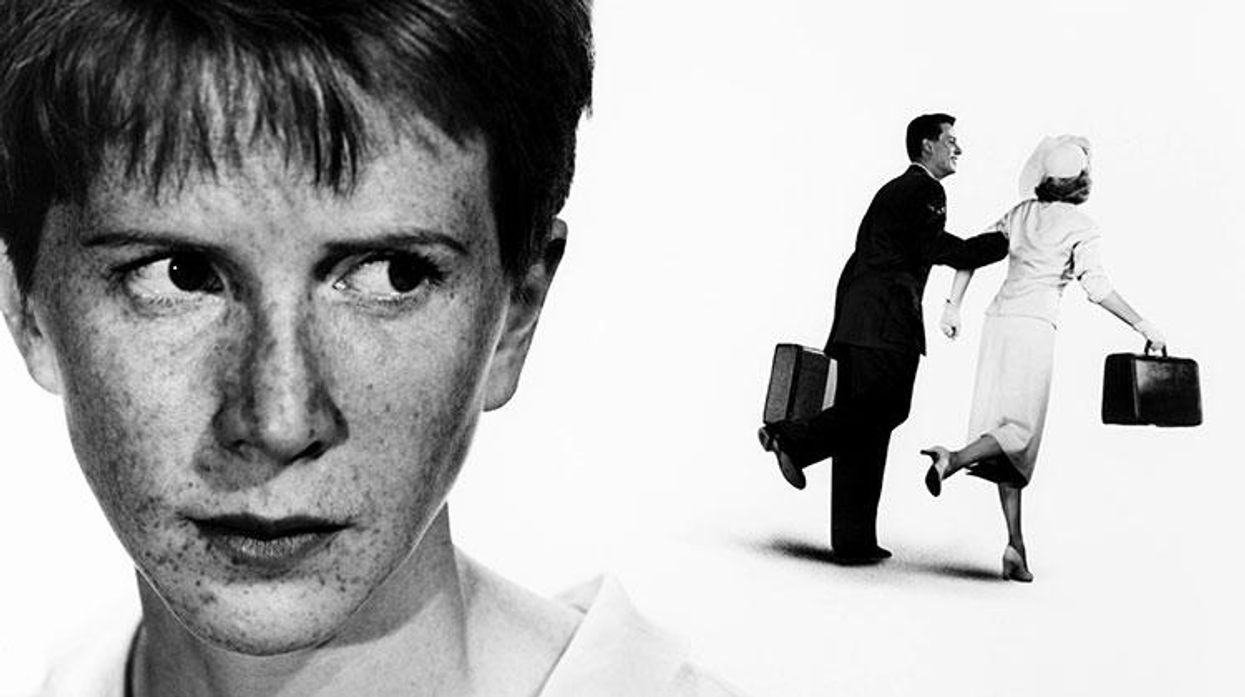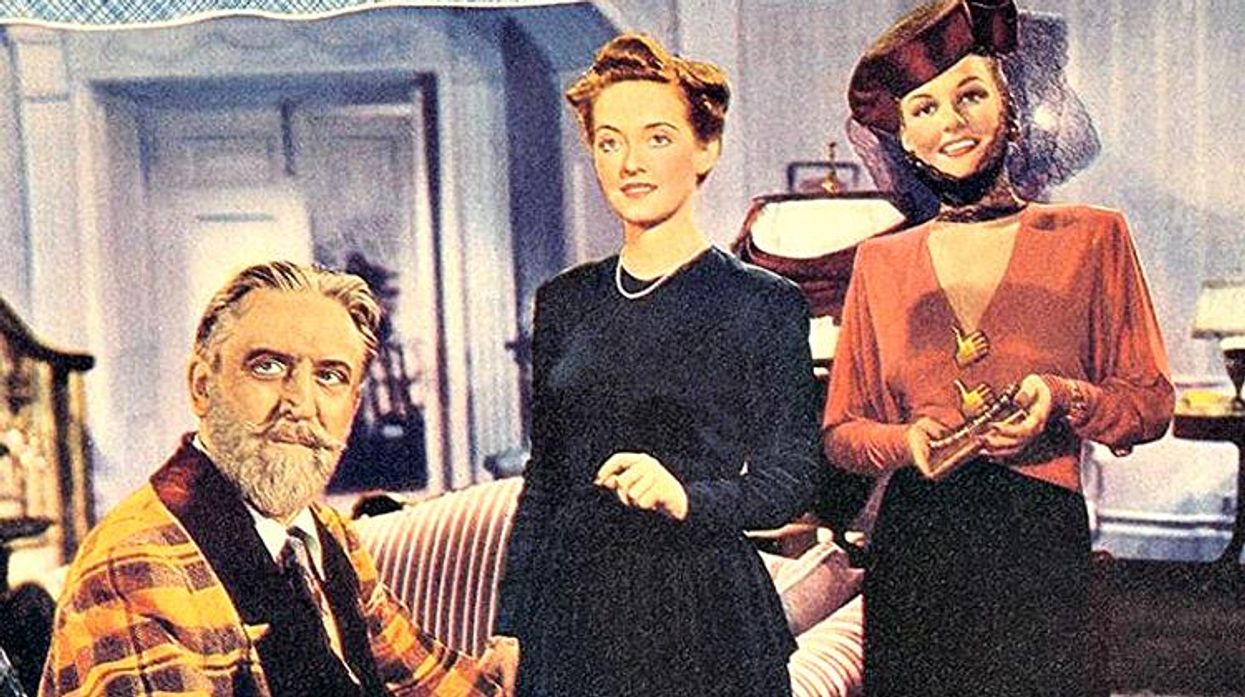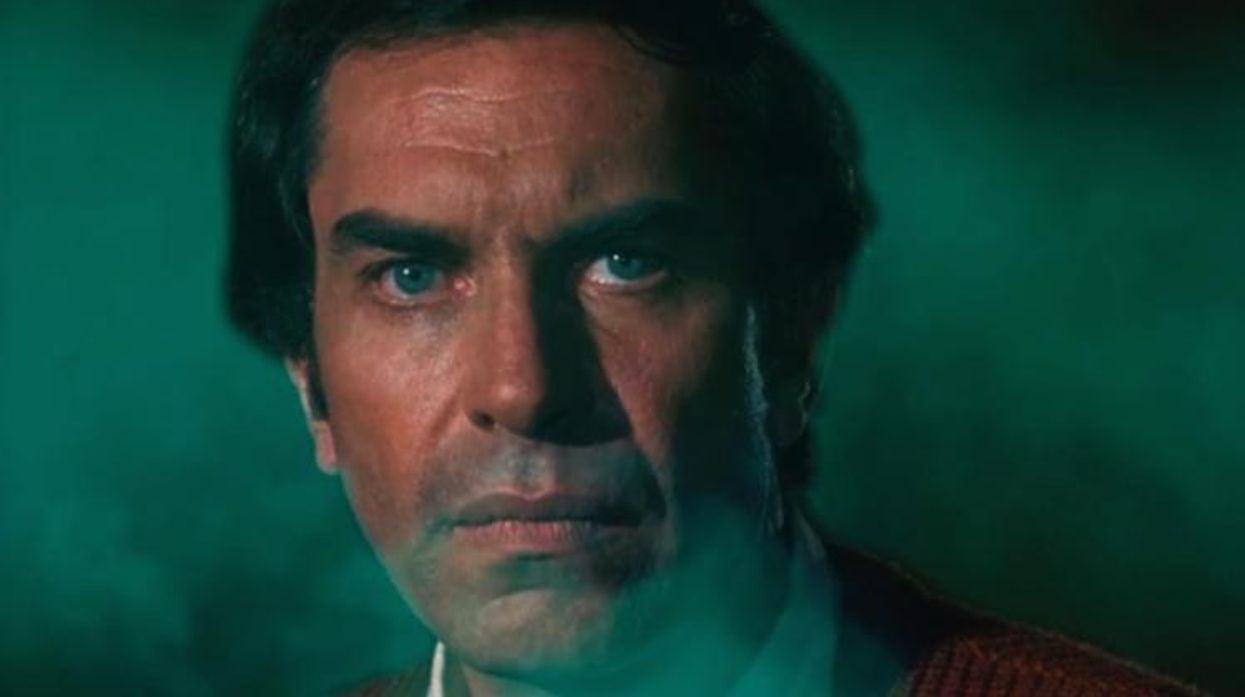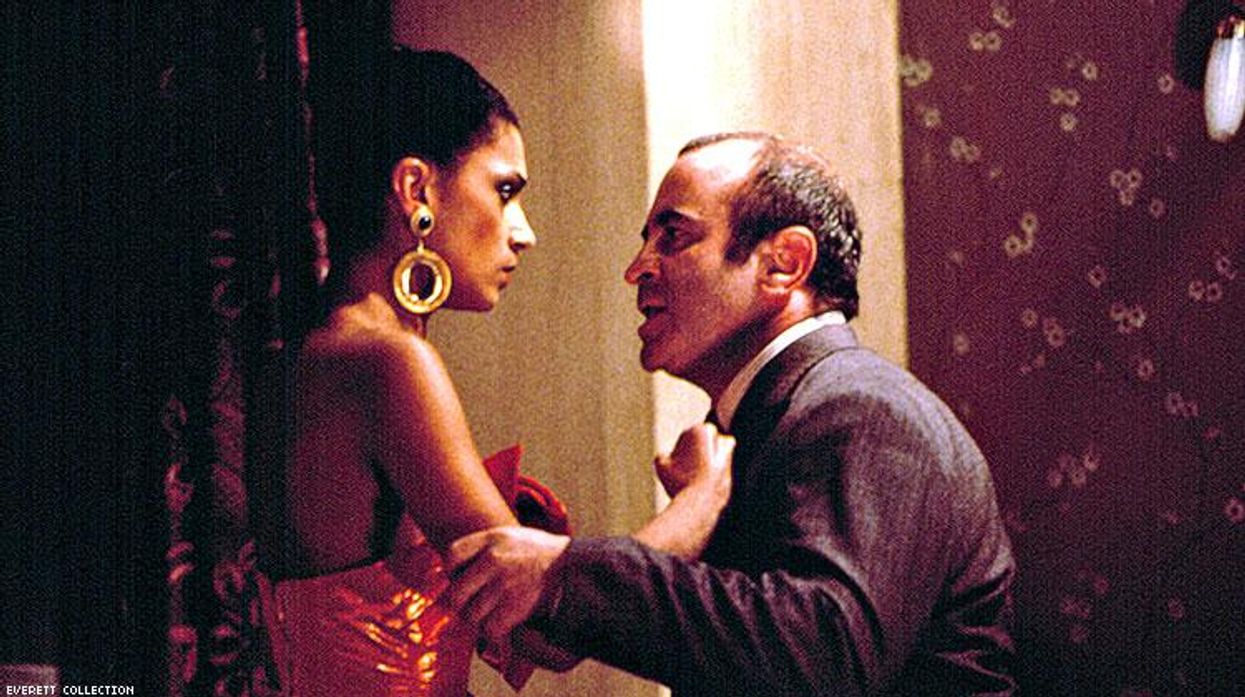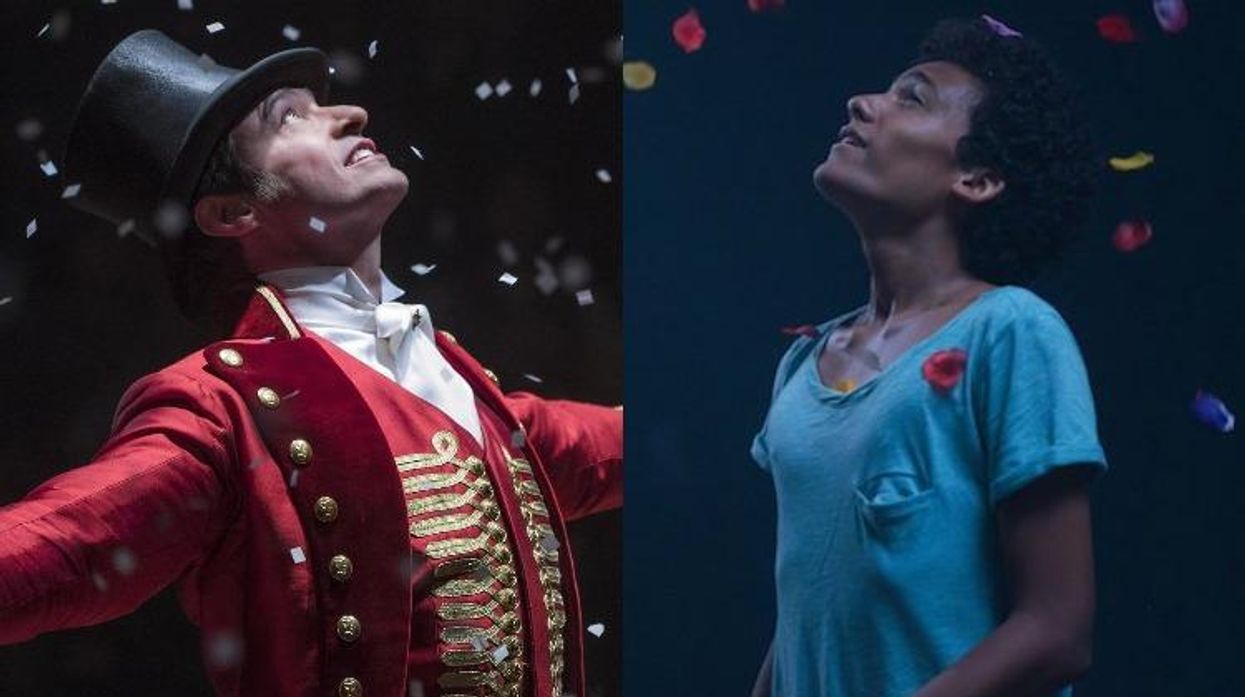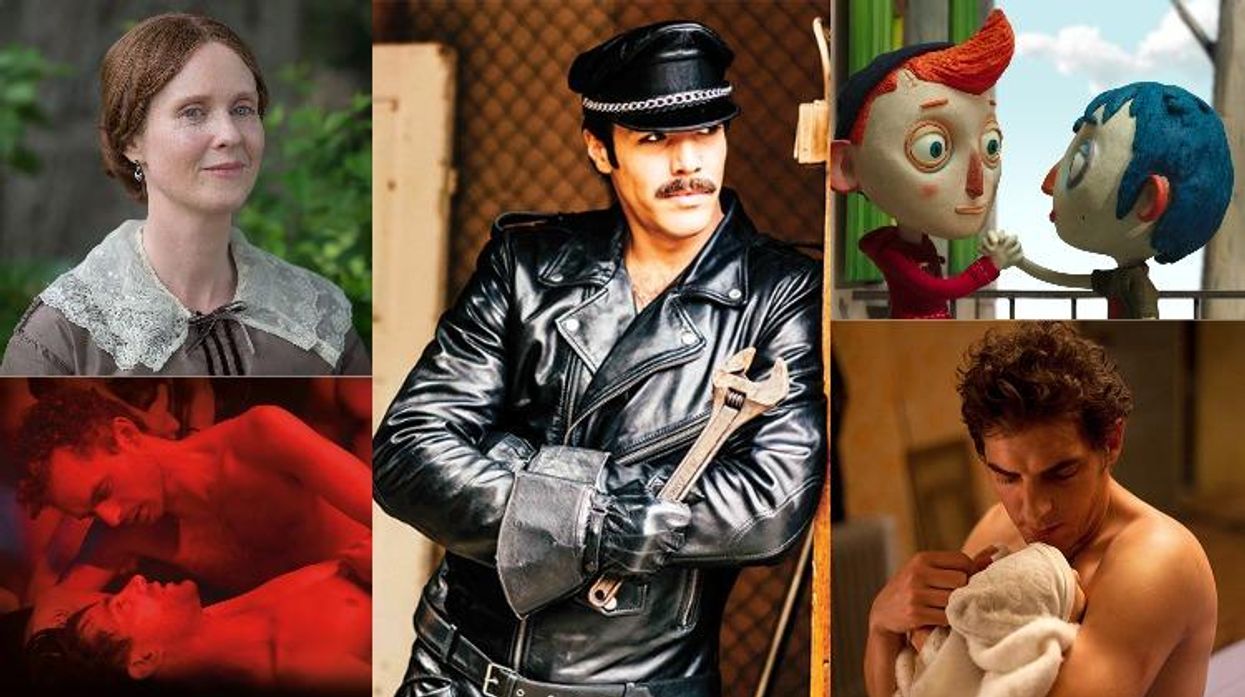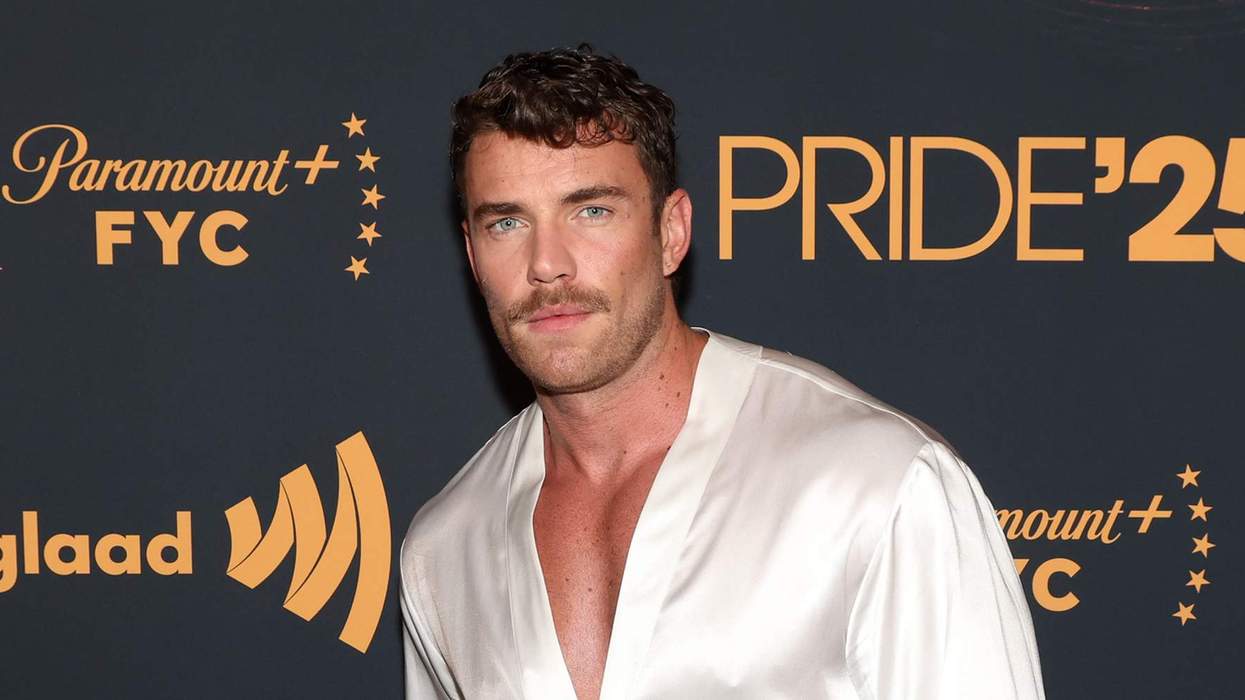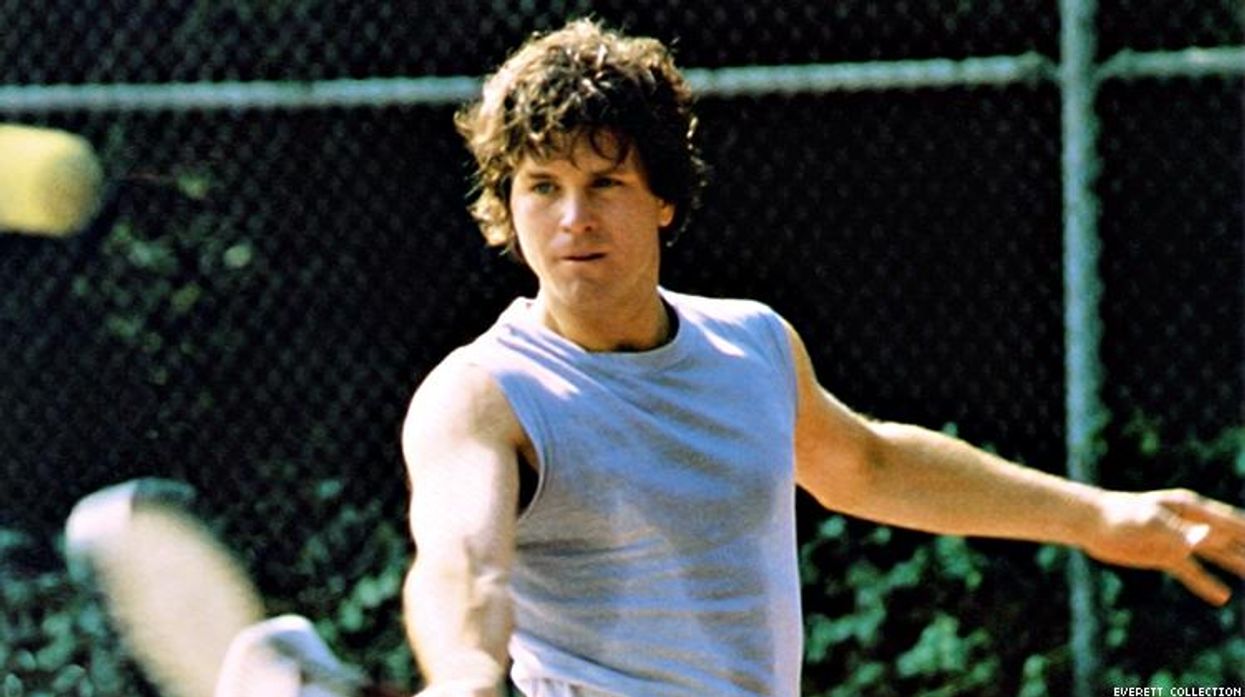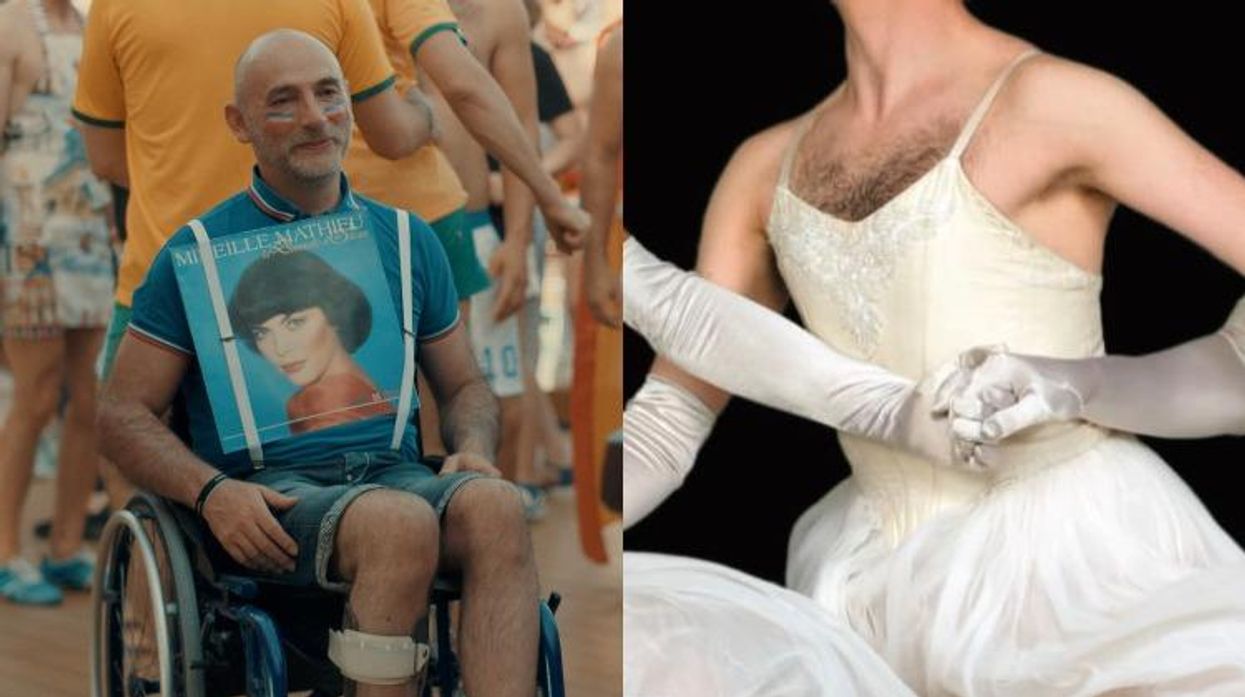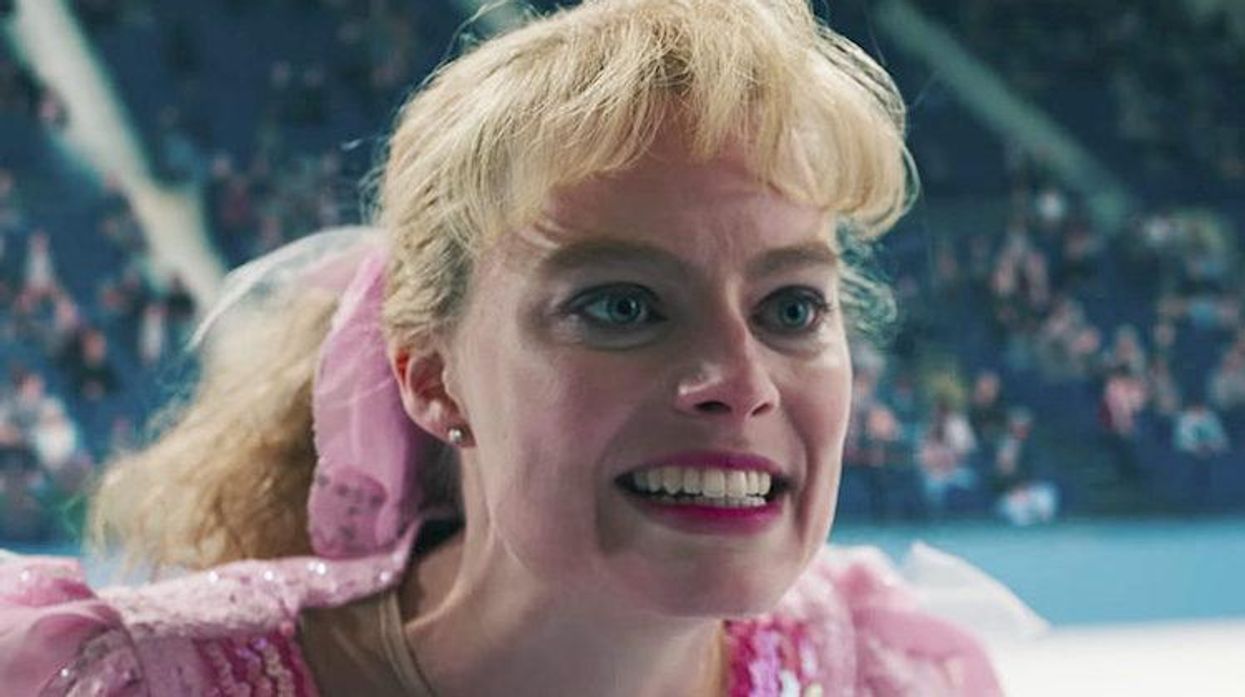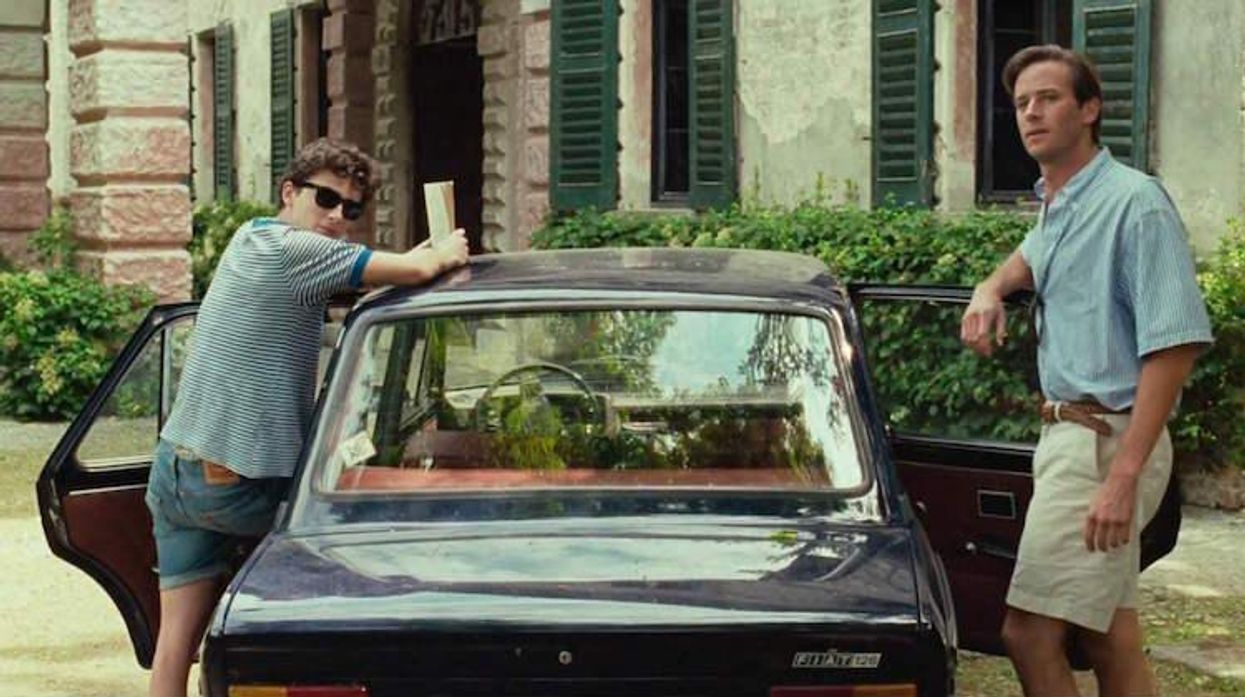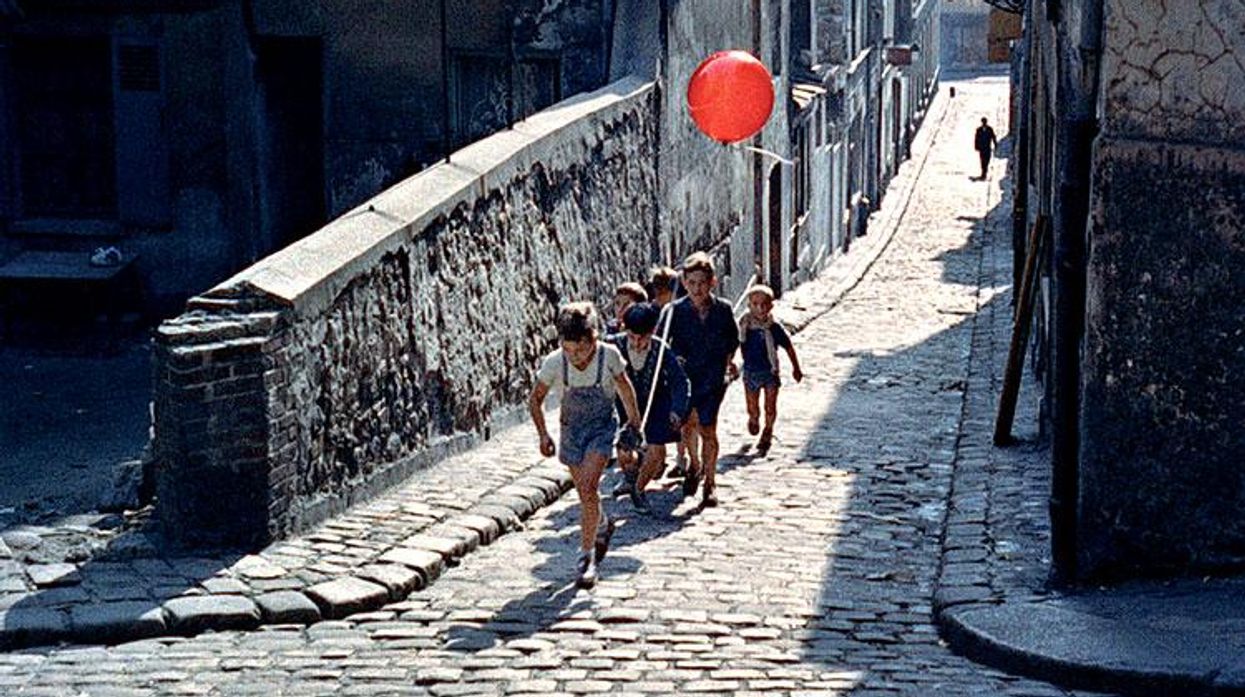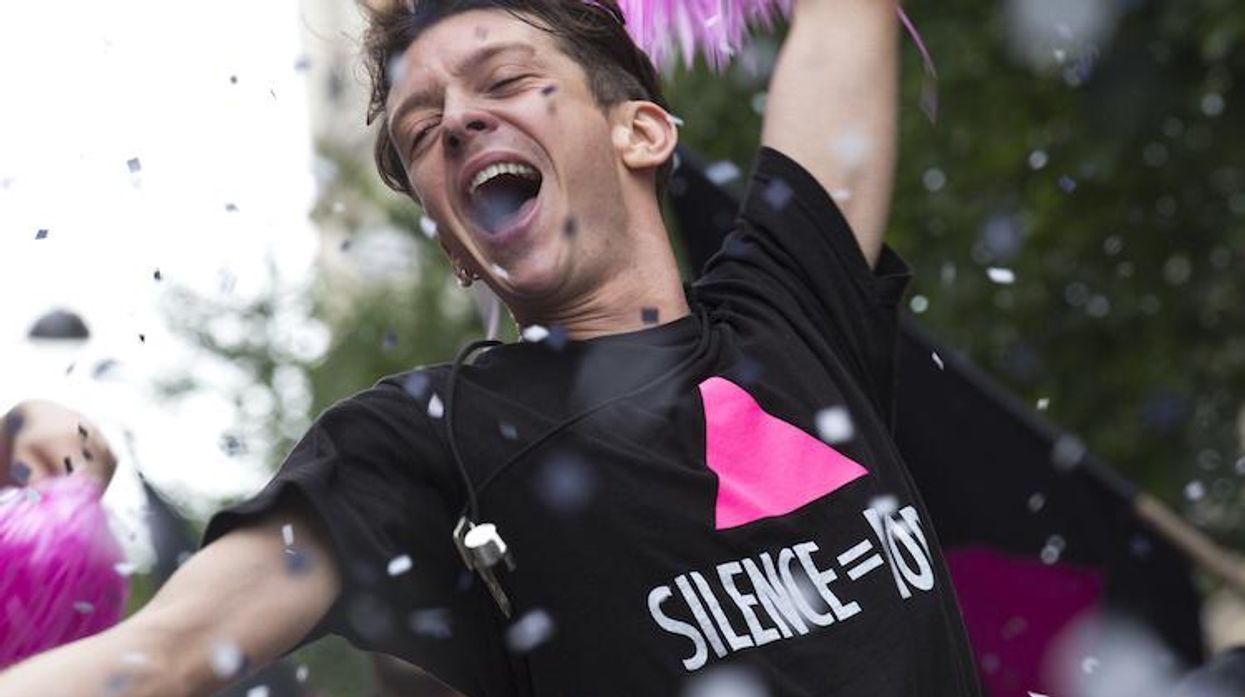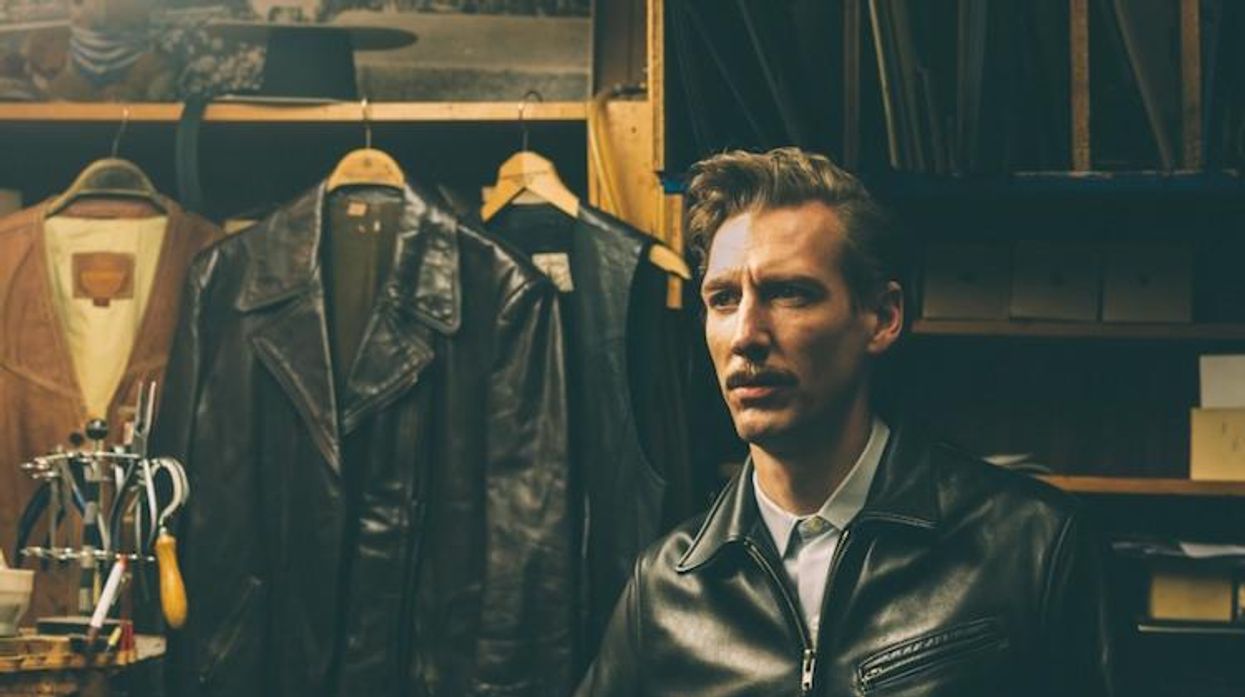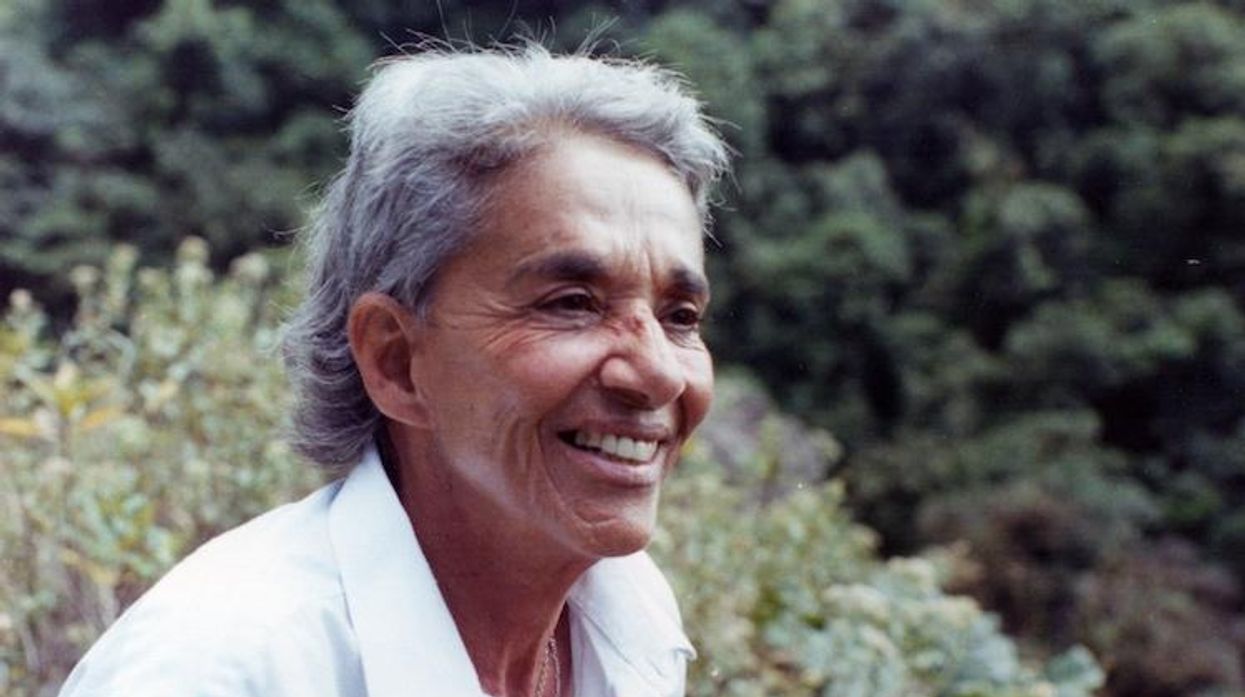Slim, with penetrating eyes and aquiline nose, Sebastian Silva wears a beard trimmed to a dark shading on his strong jaw; he matches tall, big-shouldered Tunde Adebimpe with his rug-like scruff. Sensually complementary, they play a white/black gay couple living New York's bohemian lifestyle inNasty Baby. A TV commercial might feature Silva's Freddy and Adebimpe's Mo as modern ideals: They're stylish, upscale and gay--meaning hip--urbanites that consumers look to pattern themselves after. But the things Freddy and Mo do in Nasty Baby--the social behavior they show themselves capable of--makes the film an anti-hipster commercial. It is the most unexpectedly disturbing gay movie this year.
Freddy's new performance-art project as a whining infant personifies trust-fund smugness. It also reflects his decision to be a sperm donor to Polly (Kristen Wiig), his physician friend who is determined to give birth out-of-wedlock according to popular fashion and before she gets too old. When Freddy's sperm count proves too low, his loses artistic confidence, suffers deep disappointment and gets prickly. Mo, after some trepidation, agrees to be the donor, making them the ultimate progressive menage a trois, blithely flaunting their sense of entitlement.
These typically attractive but not very nice bohos could be spotted a mile away. I mistook their scheme for updating Object of My Affection, that Jennifer Aniston-Paul Rudd film about a gay sperm donor, but I shouldn't have. This film's first joke (calling Aniston "so bland, she's like "bread") creates unsettling tension which Silva, a Chilean who also wrote and directed Nasty Baby, uses in his first-hand observation of Freedy, Mo and Polly as bourgeois social types. Their manners suggest Woody Allen. Lena Dunham and Mumblecore characters wrapped in their own interests and their questionable ease as members of New York's hip new gentry.
Indie films usually promote the culture, routines and social perspectives of the people who make them but Nasty Baby attempts bold social satire. Bold because at this point in cultural history, Silva undermines the practice of protecting gay characters with political correctness. Freddy and Mo look great together but they're far from paradigms; Spanish surrealist Luis Bunuel would understand Silva's dare to subvert Object of My Affection convention in order to examine exactly what it means when gay people exhibit the indiscreet charm of the bourgeoisie.
Unlike most indie filmmakers, Silva implicates himself in the film's class-based drama. He convincingly portrays Freddy's thin-skinned sadness and infantile touchiness. Silva's Freddy is a rare gay character whose self-involvement--and self-examination--reflects uncomfortable introspection.
Gay is not the new black in Silva's viewpoint. Latin ex-pat Freddy and Afropunk Mo both provide bourgie metrics of hipster Brooklyn. Nasty Baby dares confront today's up-ended social tensions by teasing out the new privileges and antagonisms that come with social change. Silva rouses the unease of cultural territorialism. Remember the hateful, unruly kids in Spike Lee's Crooklyn? Their adult counterparts in Nasty Baby also suggest first-hand observation but Silva provides social critique that American-born filmmakers like Lee refuse due to the arriviste sense of power that comes with acquiring social cache.
In a quarrel with a neighbor, an in-your-face black elder named The Bishop (Reg E. Cathey performing a twist on Spike Lee's Do the Right Thing), Freddy and friends vent their irritation through snobby stereotypes. Suddenly the victim becomes the victimizer--a dramatic shift as stunning as Freddy's whine. Silva levels an attack on the middle-class advantages that gays can now aspire toward. It is not coincidental that Richard (Mark Margolis), the white, gay elder Freddy clings to like a father figure, is a veteran in the gentrification wars. Their final collaboration catapults this social satire into another sphere (again Bunuel comes to mind) and when scored to a Michael Feinstein radio broadcast, it makes a devastating comment on class and lawlessness.
What's funny in Nasty Baby becomes subversive. Mo's smiling sister challenges his boho cred as egotism (Adebimpe is lead singer for the Brooklyn rock band TV on the Radio). Freddy's fight with an art patron ("This is not Jay-Z's Picasso, Baby!) takes place in a gallery of shockingly obscene Michael Jackson composites. Even flibbertigibbet Polly slips into hypocrisy. Ring the alarms! I'm suspicious of Silva's outsider's (Marxist?) cynicism but to prompt sexy recognition then self-examination is a welcome political alternative.
Nasty Baby is currently in select theaters.


